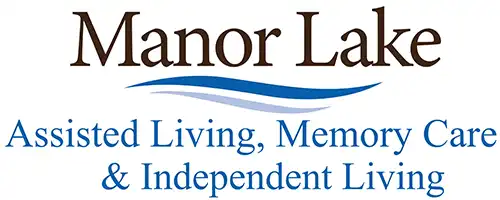
If you are a subscriber or frequent viewer of our assisted living and memory care blog, you know that here at Gainesville’s Manor Lake Assisted Living and Memory Care, we take great pride in our holistic approach to managed care. We invest heartfelt time and energy managing this senior care blog for the purpose of assisting those of you at-home senior care providers to help you deliver the best care possible. We want all of you to consider us a ready resource for information and advice that is intended to help improve your quality of life as well.
So, today let’s talk about the most common dietary deficiencies effecting today’s seniors who are not serviced by professional senior assisting living or memory care community living support. As our loved ones grow older, they start to expend less energy and require fewer calories as compared to the past. This means that eating foods that are healthy and nutritious are very important for the elderly as every calorie counts. However, it may be challenging to get enough nutrients to prevent dietary deficiencies like mineral or vitamin deficiencies. Read on to find out more about the most common dietary deficiencies!
Why do Mature Adults Have Mineral and Vitamin Deficiency?
There are several reasons to why mature adults are more prone to vitamin and mineral deficiency. Firstly, as people age, their bodies do not absorb nutrients as well as before, thus putting them at risk of nutrient deficiency. Furthermore, some medications that they are required to take end up interfering with the body’s capability to absorb vitamins and minerals.
With age, their teeth also become weaker, and some even lose their teeth. This makes it difficult for them to consume certain types of foods that are rich in nutrients, such as vegetables and fruits. Furthermore, as their mobility decreases, it may be hard for them to make grocery runs frequently to stock up on nutrient-dense foods.
Vitamin B12 Deficiency
Vitamin B12 is an important nutrient in our body and is needed for the body to construct the DNA in our cells. However, with age, vitamin B12 is absorbed less efficiently into the body. A deficiency of vitamin B12 in the body can lead to pernicious anemia. Some symptoms to look out for include vision that is blurred, breathlessness or dizziness, fatigue or weakness, issues with walking, an inflamed tongue, tingling sensations in the feet and the hands, mood swings, or changes in memory.
Calcium Deficiency
Calcium is another important nutrient in the body that is in charge of keeping the teeth and bones healthy and strong. Men over 70 years old and women over 50 years old are more prone to calcium deficiency as the body is less able to absorb calcium properly with age. This could also be linked to a lack of vitamin D. If the body is deficient in calcium, it will start absorbing calcium from the teeth and bones and could lead to osteoporosis and weak bones in the future.
Vitamin D Deficiency
To maintain a strong immune system, the body will need sufficient vitamin D to help the nerves and muscles in the body do their jobs. Vitamin D can also help the body have a more efficient absorption of calcium. A vitamin D deficiency is one of the most common vitamin deficiencies in America.
As people age, it is important to ensure the body remains healthy and strong by giving it the nutrients it needs. Feel free to contact us to find out more about our senior living and memory care communities!

